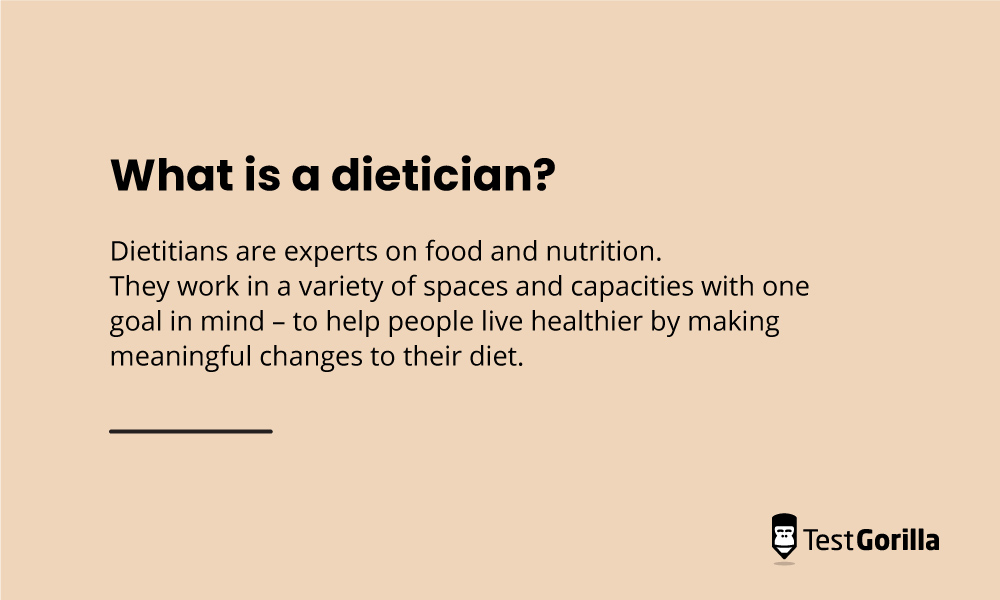All Categories
Featured
Table of Contents
The types of Nutritionists are: and. The former are those people who utilize the clinical approach to research nutrients, both as private substances and as they communicate in food and nutrition while the last are professionals who assist in detecting the nutritional problems of areas and in discovering services to those problems.
: They deal with health cares and global health and wellness organizations.: They are liable for massive food preparation and service.: They are experts in nutrition and aging. They are Board accredited in Gerontological Nutrition with the American Dietetic Association.: They are mostly included with nutritional related study in the clinical facet of nourishment in disease states, public facet on main, additional and in some cases tertiary health and wellness avoidance and foodservice facet in issues involving the food gotten ready for people.
Which Is The Best Child Nutrition Guidance Company?
: These work as resource individuals for the media. Dietitians' experience in nutrition is often taped for television, radio, and papers-- either as a professional visitor viewpoint, normal reporter or guest, or for resource, restaurant, or dish development and critique.: These job under exclusive practice. As described over, all dietitians are nutritionists yet not all nutritional experts have the qualifications and credentials to be called dietitians.
This suggests exactly the exact same point as Registered Dietitian (RD), a term that has remained in usage for a long period of time. All RDs are RDNs but some choose to call themselves that and some do not. Even more making complex issues are certificate requirements. While accreditation to end up being an RD or RDN is governed by the Academy of Nourishment and Dietetics a nationwide company licensure is regulated by private states.

In order to supply clinical nutrition treatment and qualify as suppliers for insurance coverage business, a dietitian must be accredited by the state. According to the Bureau of Labor Data, the need for dietitians and nutritional experts is anticipated to enhance by 20% between 2010 and 2020 this is a much faster development price than the average for all professions.
Is It Worth Paying For Child Nutrition Guidance?
There are substantial distinctions in settlement based on specialization, with Clinical Pediatric Dietitians and Milk Nutritionists averaging approximately $90,000. In 2014, The Bureau of Labor Data (BLS) located that the leading 10% of dietitians and nutritionists earn greater than $79,000, and the lower 10% much less than $36,000 - Weight Loss Dietitian. A mean per hour wage of $27.62 was determined for both fields, with the leading 10% earning above $38.00 per hour, and the lower 10% earning below $17.00 per hour

However, there is a range of jobs available in different settings for those who desire to deal with the public, as well as for those that choose even more research-focused employment. Several enter into among these areas in order to assist individuals live healthier lives which can be immensely satisfying.
With existing stats that one-third of the U.S. population is overweight, in addition to a multitude of senior U.S. homeowners, dietitians and nutritionists are likely to have an extra substantial duty in the future. My Strategy rates dietitians and nutritionists at # 53 in their happiness index of leading 300 careers with the greatest job satisfaction rankings.
In addition to participating in an approved program, many states call for dietitians to be certified or to have specialist qualification, or both. On the other hand, only concerning fifty percent of states require such credentials for nutritional experts. However, lots of professional roles for nutritional experts call for at the very least a bachelor's degree, and the very same certification is available for nutritional experts and dietitians alike.
How Do I Choose A Vegan Nutritionist Service?
Your core courses might include: Food scientific research Chemistry Health treatment plan Scientific nourishment Biostatistics Microbiology Food solution administration You'll likewise require to finish a dietetic internship.

And to advance in the field, you'll likely require a master's level. Whether created in law or not, dietitians and nutritionists several times need a similar education and learning. Common bachelor's degrees for nutritional experts consist of nourishment science or an associated discipline, such as dietetics, kinesiology, food system monitoring, or biochemistry and biology. A few of your courses may include: Fads in nourishment Biomedical stats Clinical nourishment Food, nutrition, and habits Nutritional ecology Area nutrition Physiology Some level programs include teaching fellowships, yet in others you'll have to locate chances by yourself.
The variety of hours you'll require may depend upon requirements in the state where you'll work. Whether you plan to make a credential or otherwise, it's an excellent idea to finish at the very least one teaching fellowship to get important experience prior to looking for a full time function. Licensing and accreditation needs for nutritional experts and dietitians vary from one state to another.
What Is The Best Pregnancy Dietitian Service?
An expert certification demonstrates your experience and understanding in your field. Here are the leading accreditations for dietitians and nutritional experts.
The titles are essentially the same. There's no professional distinction in between them, and you're cost-free to pick which one you wish to utilize based upon individual preference. To take the accreditation examination, you have to: Make an undergraduate degree that's recognized by the ACEND Complete a dietetics teaching fellowship After Jan. 1, 2024, you'll require to earn a master's degree to receive the accreditation.
What Is The Best Sports Nutritionist?
Bureau of Labor Statistics places dietitians and nutritionists in the very same classification and states they gain a typical yearly wage of $69,680. There is a range in incomes, with the bottom 10% around $44,910 and the top 10% around $98,830, according to the BLS. Nutritional expert and dietitian functions are anticipated to grow 6.6% with 2032, according to the BLS.
This doesn't imply that profession is premium to the various other, as they both have various functions and certifications that may often overlap. If you intend to discover more about what makes these occupations distinctive, keep reading. Dieticians are experts that help enhance the lifestyle through healthy food choices.
How Do I Choose A Pregnancy Dietitian Service?
Nutritionist suggestions regarding nourishment's impact on health. They help individuals adopt healthier ways of eating and produce tailor-maked plans based upon objectives. Their services consist of nutritional assessment and therapy, meal planning and establishing healthy and balanced consuming programs. Although some have official education and qualifications, others might have extra fundamental qualifications. The area is less regulated than diet professionals; therefore, nutritional experts' levels of experience and qualifications can differ.
There are a number of differences between diet professionals and nutritional experts. Here are the training and background specifications. Dieticians usually hold a bachelor's level in dietetics, nourishment, or an associated field. As their occupations development, numerous dieticians pursue advanced levels, like a Master's or Doctorate, to specialise in details locations of nutrition. Dieticians must undertake monitored sensible training as part of their education to gain hands-on experience in medical settings, community nutrition programs, or food solution monitoring.
Latest Posts
Effective Gym Community Near Me
Effective Gym Equipment – Duncraig 6023 WA
Motivating Active Lifestyle